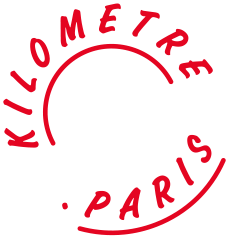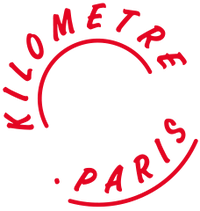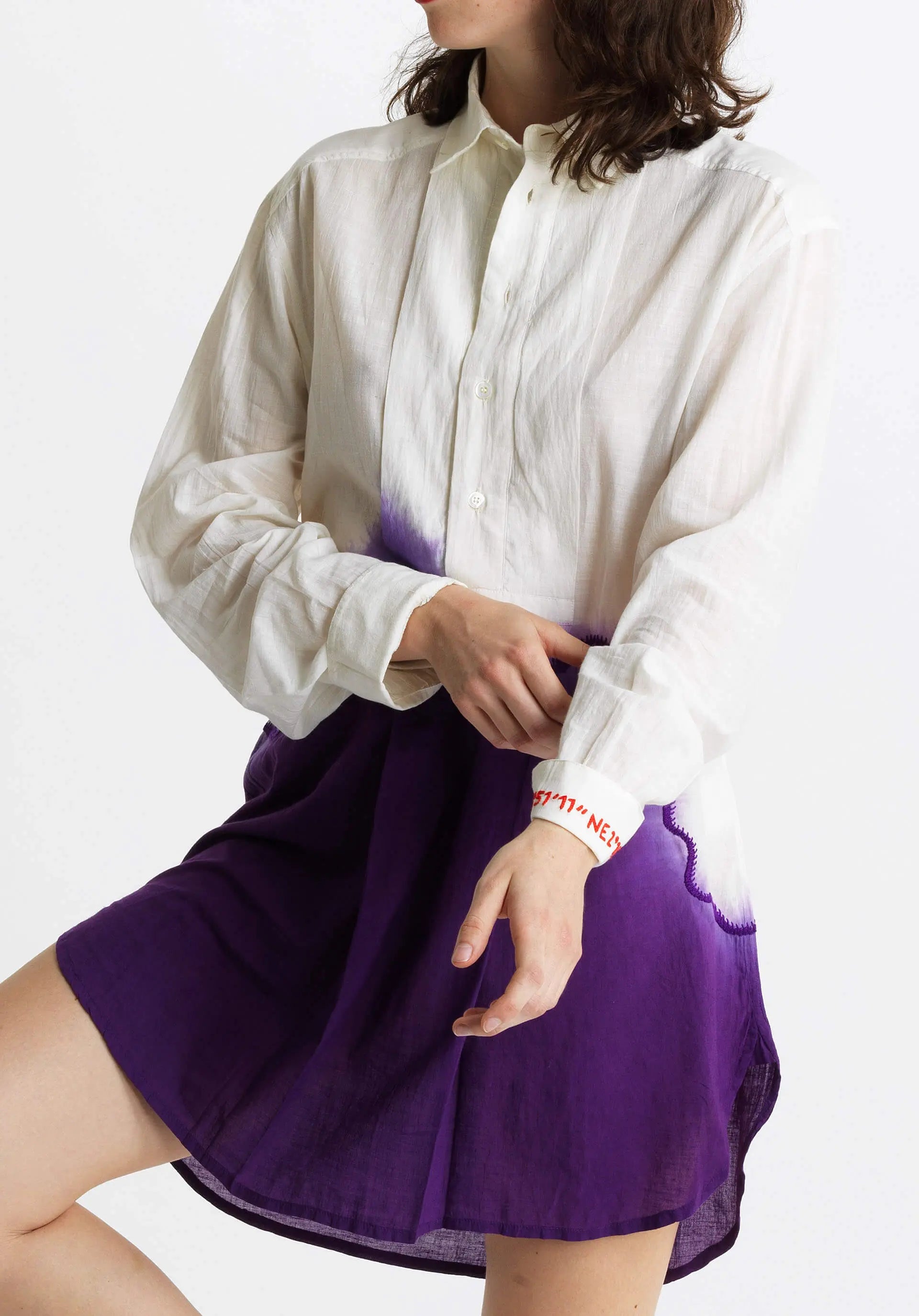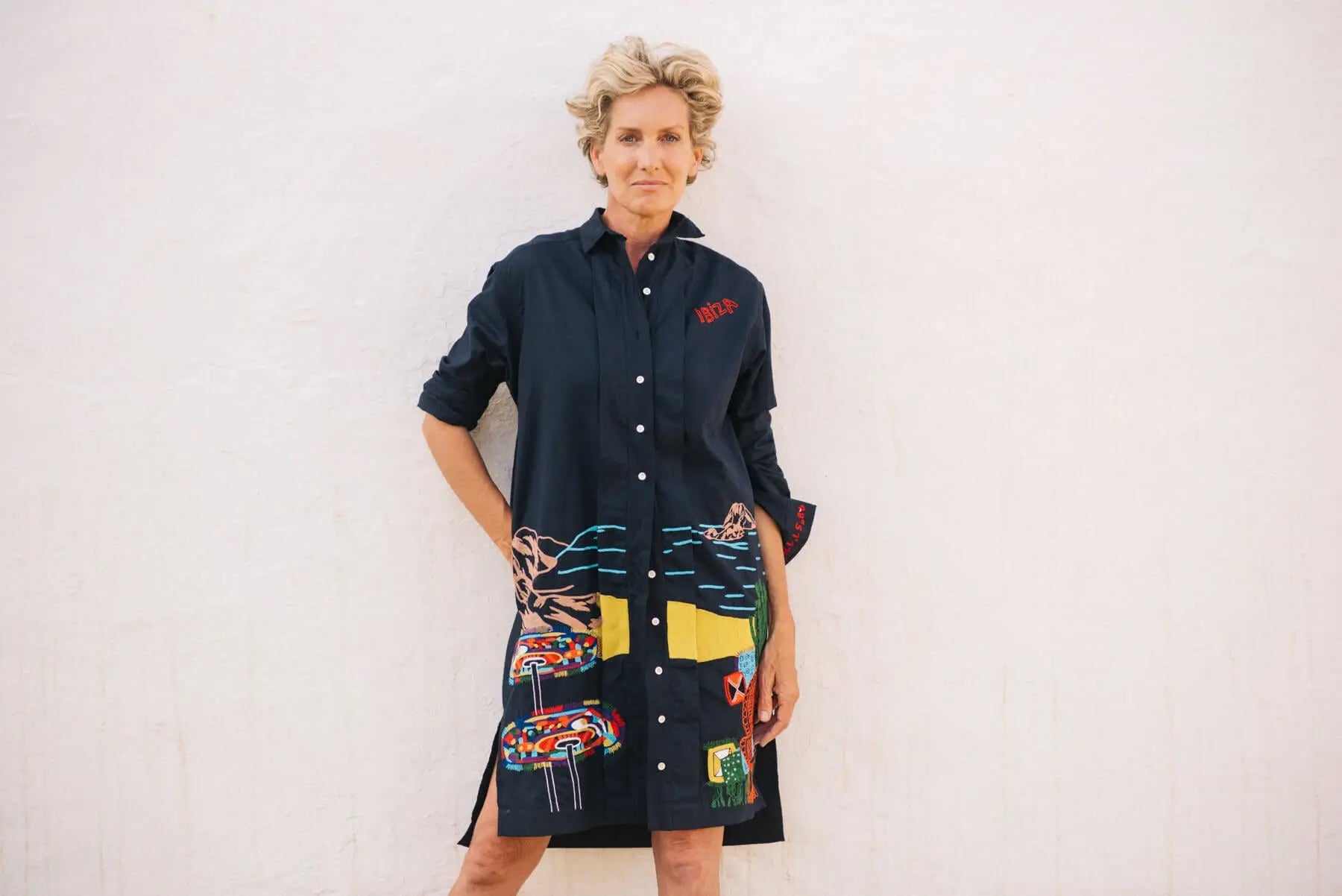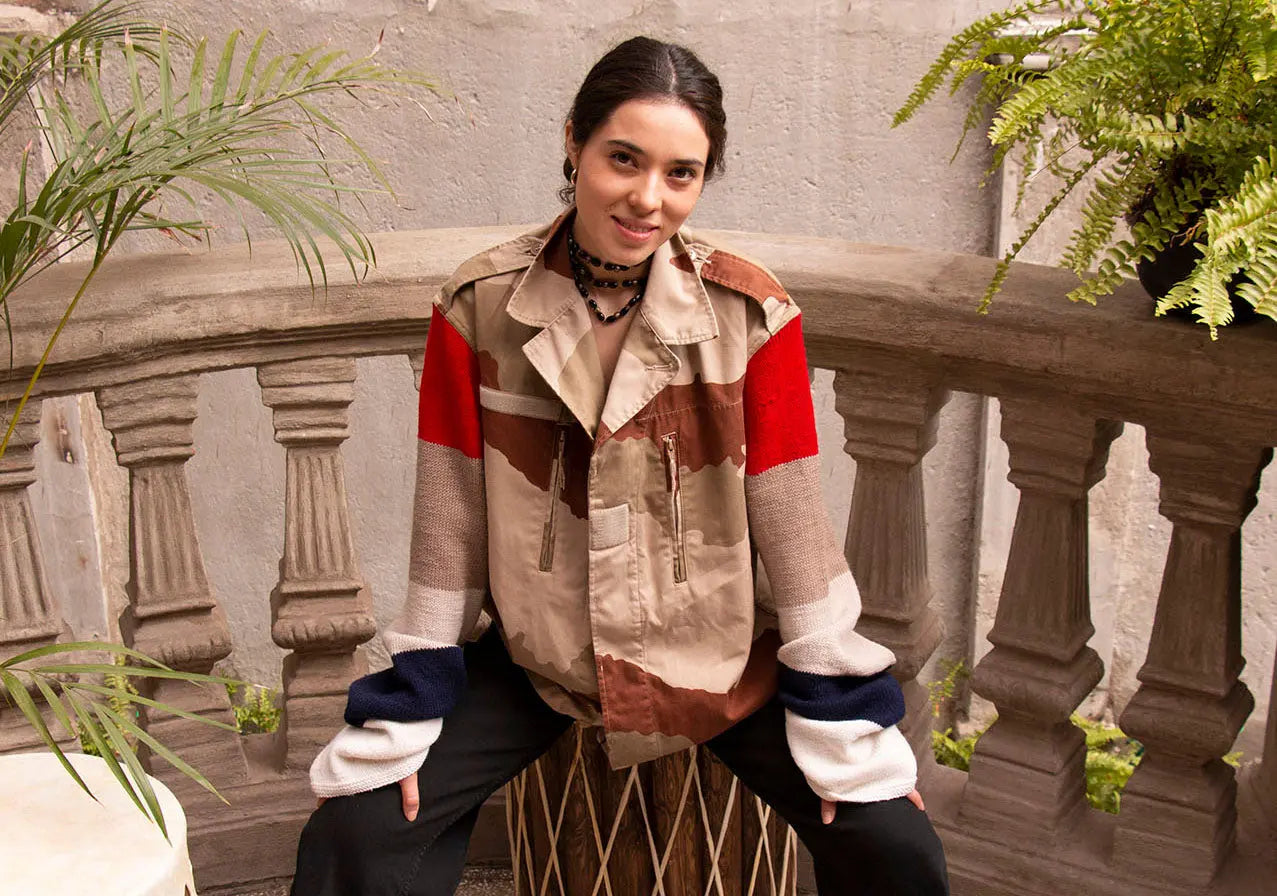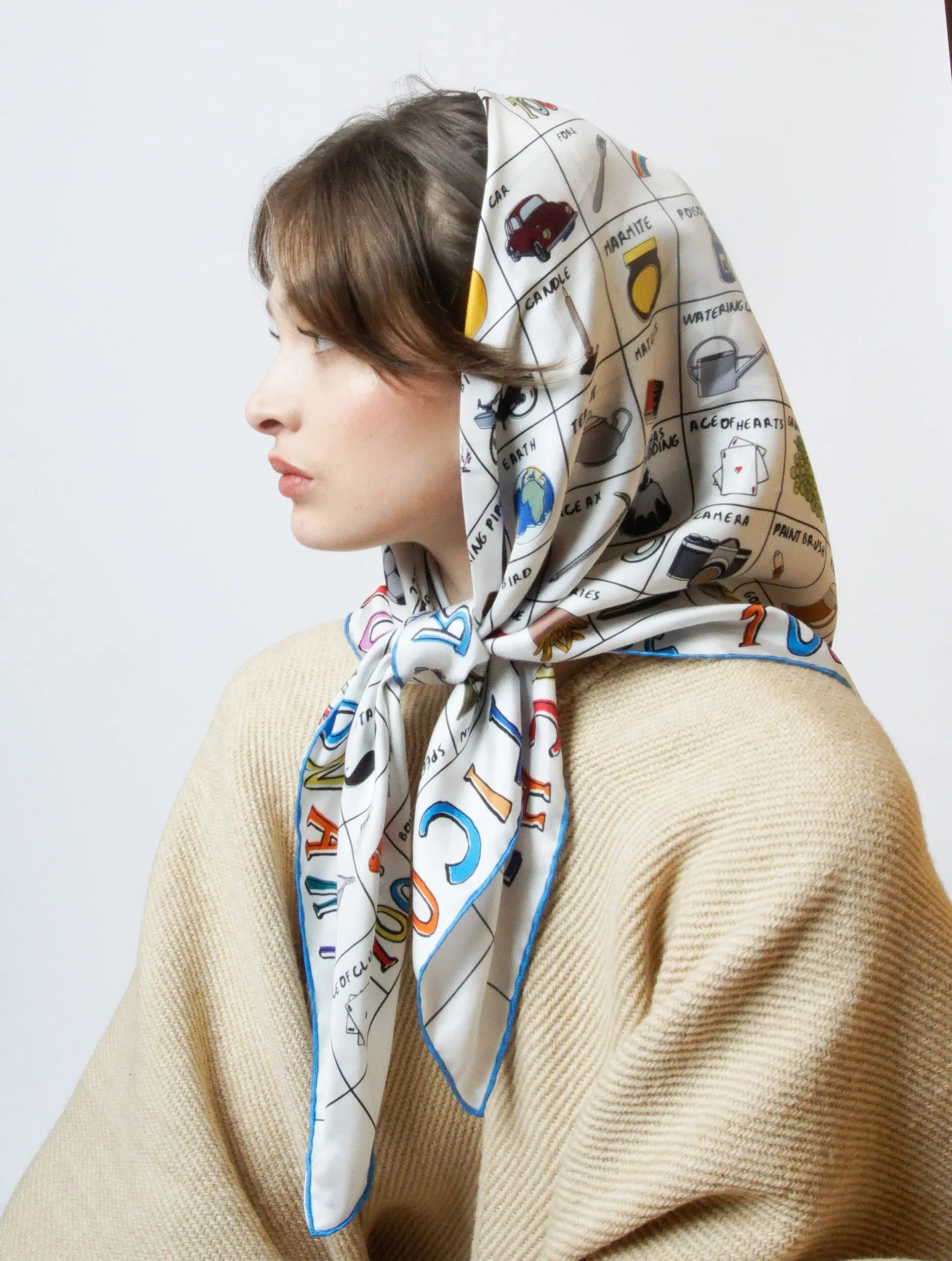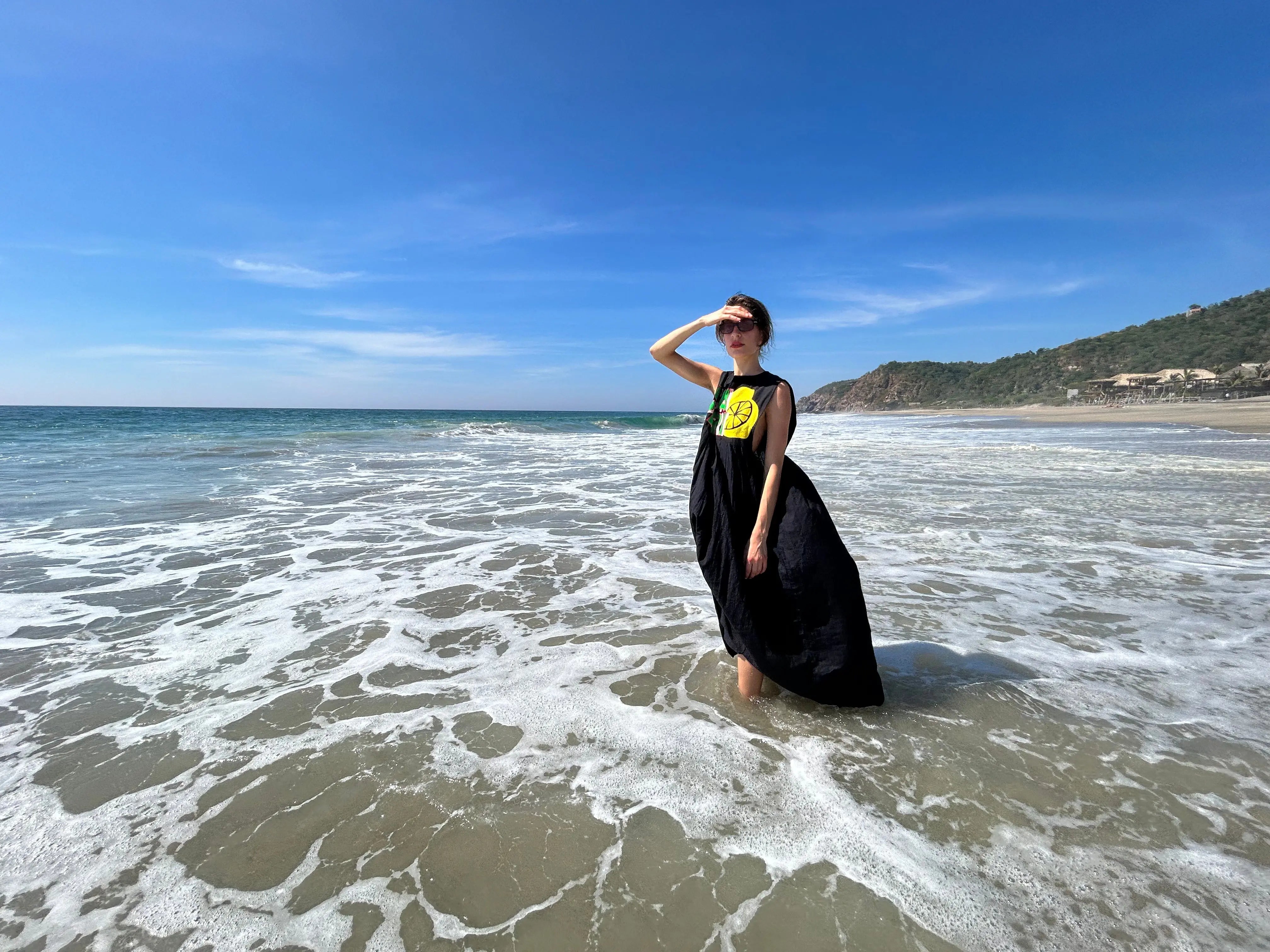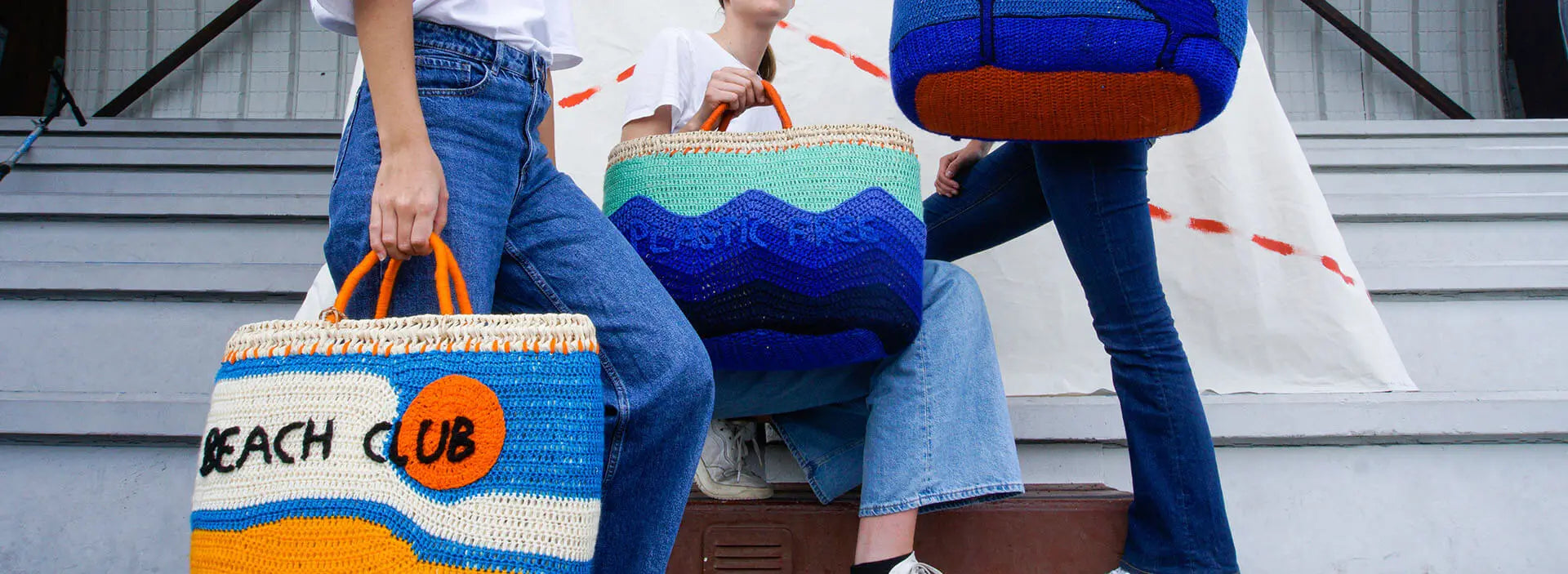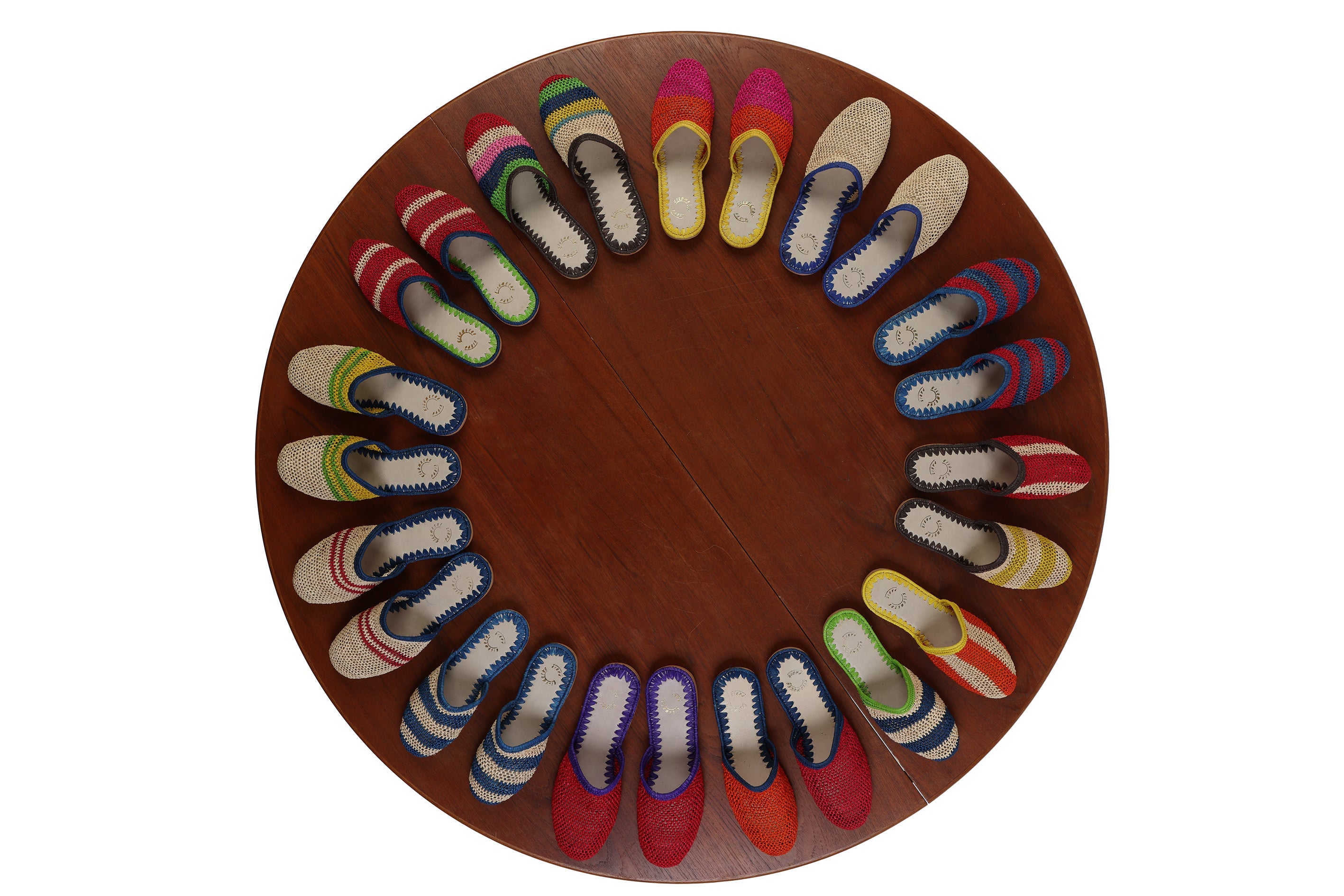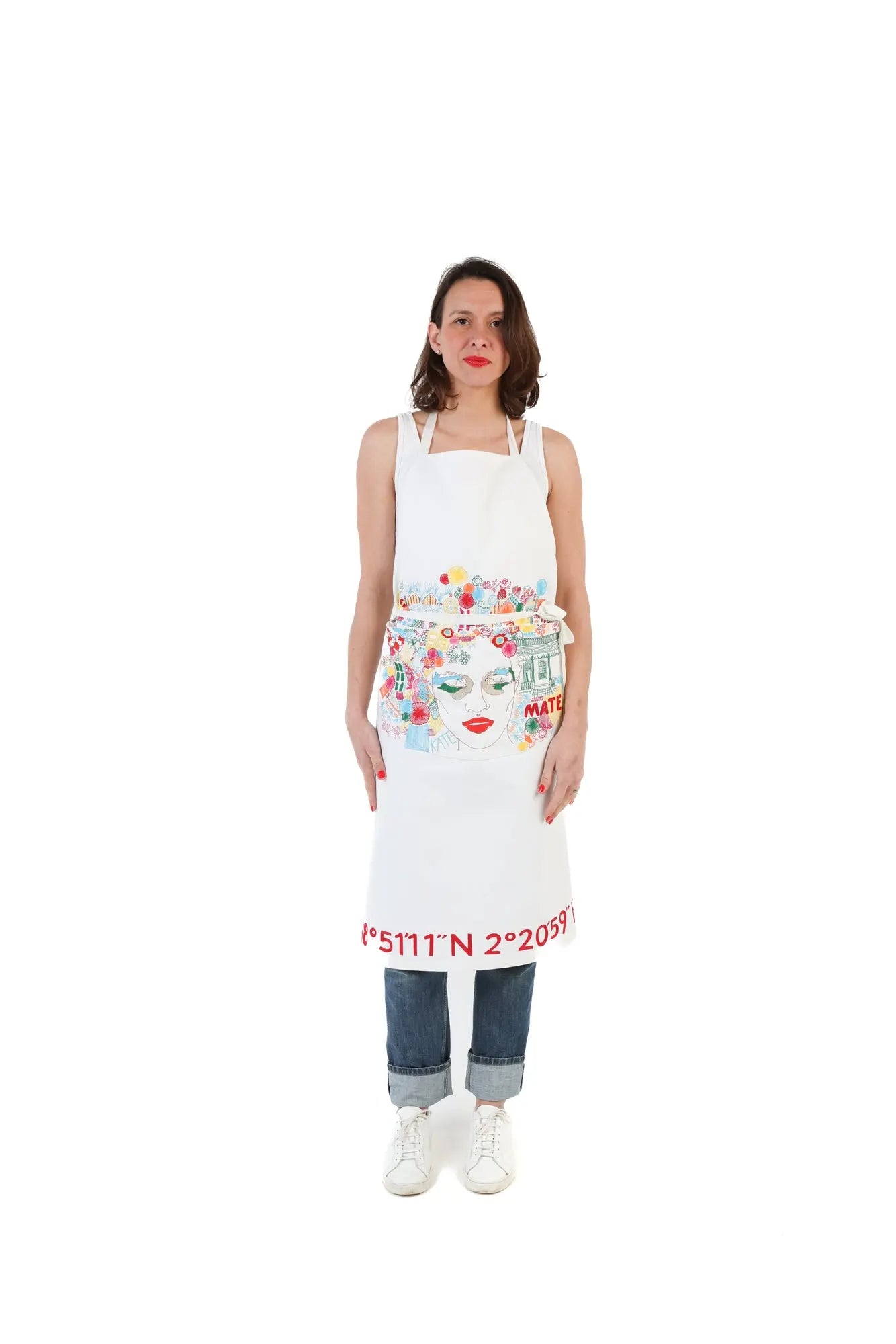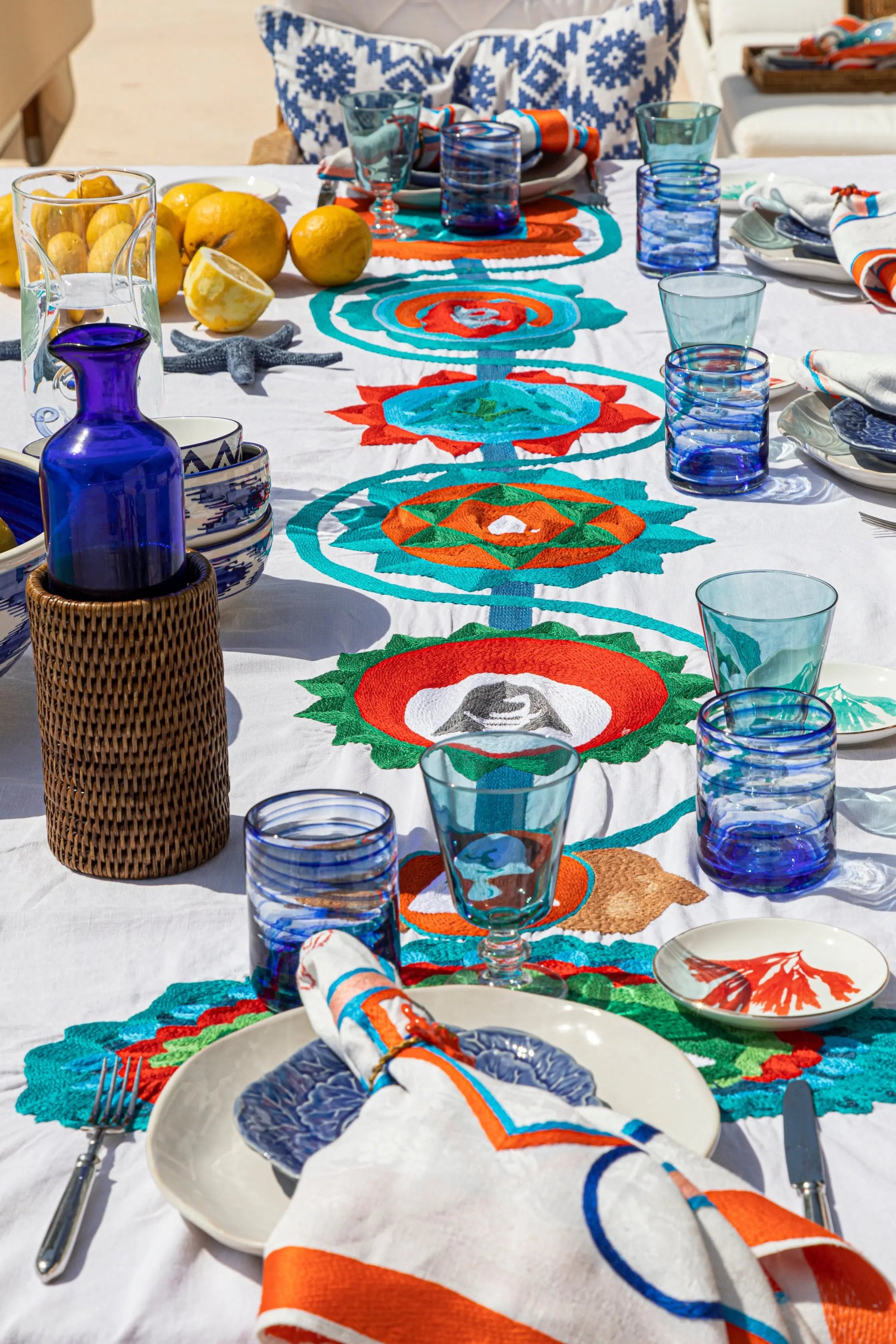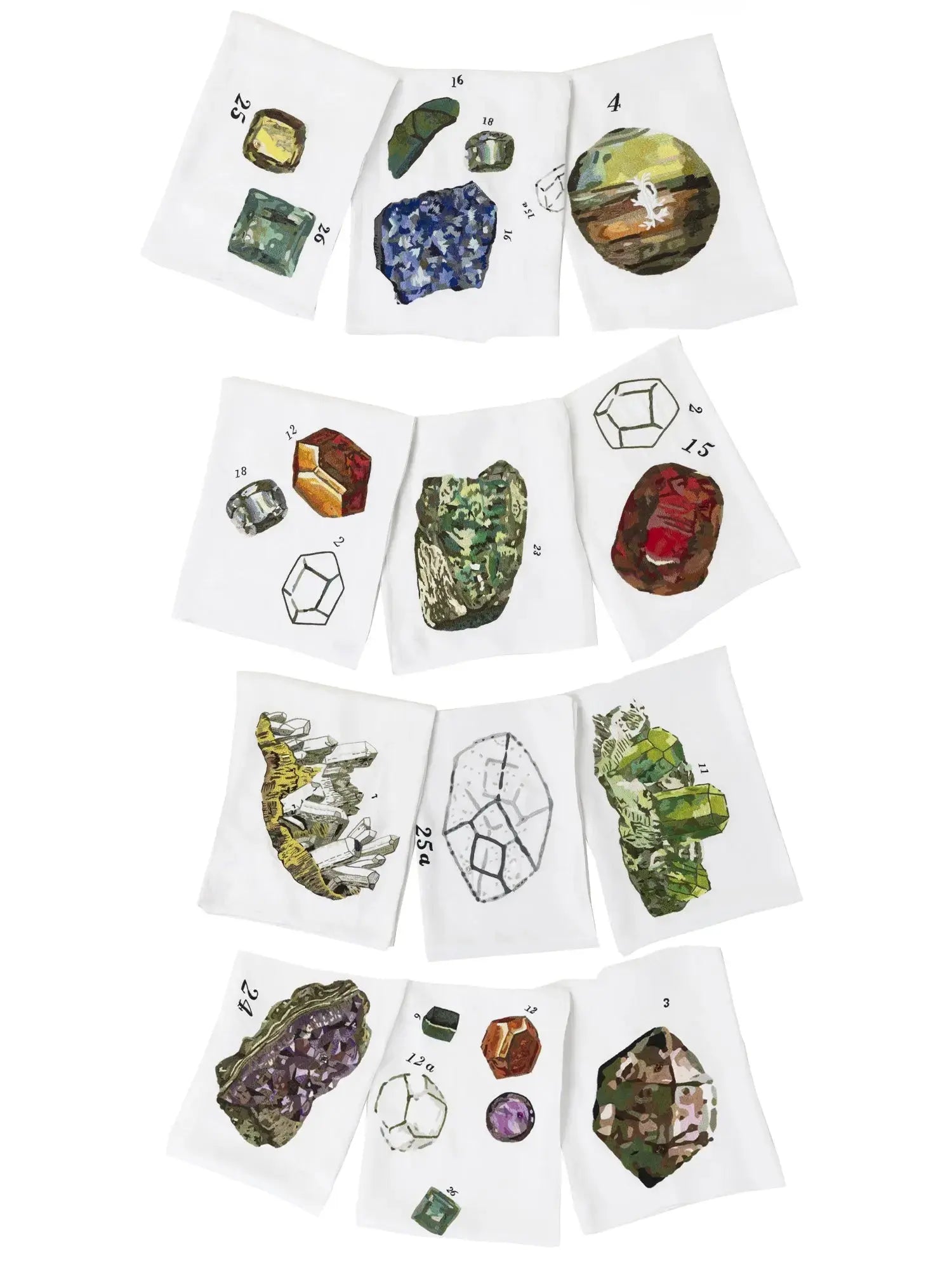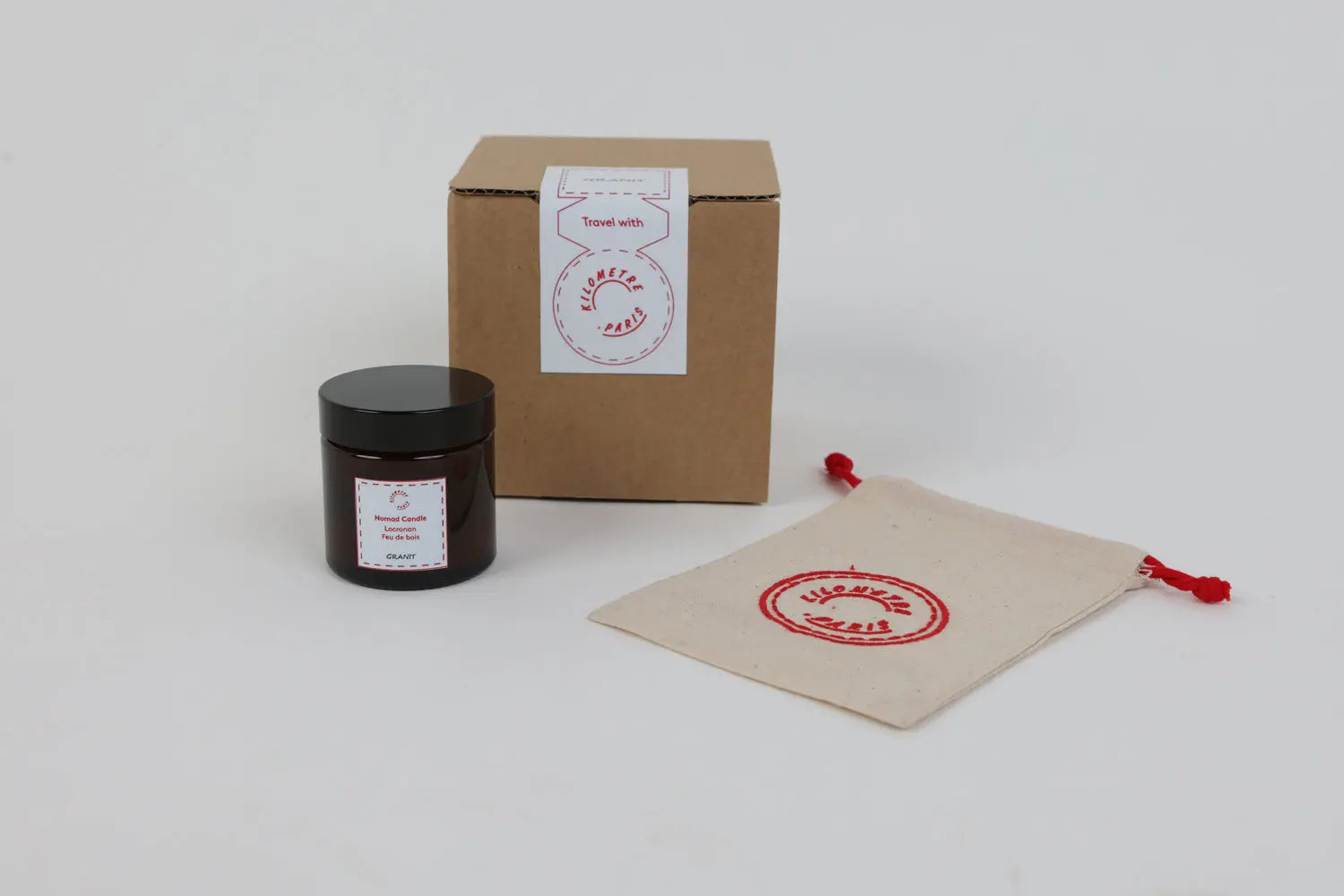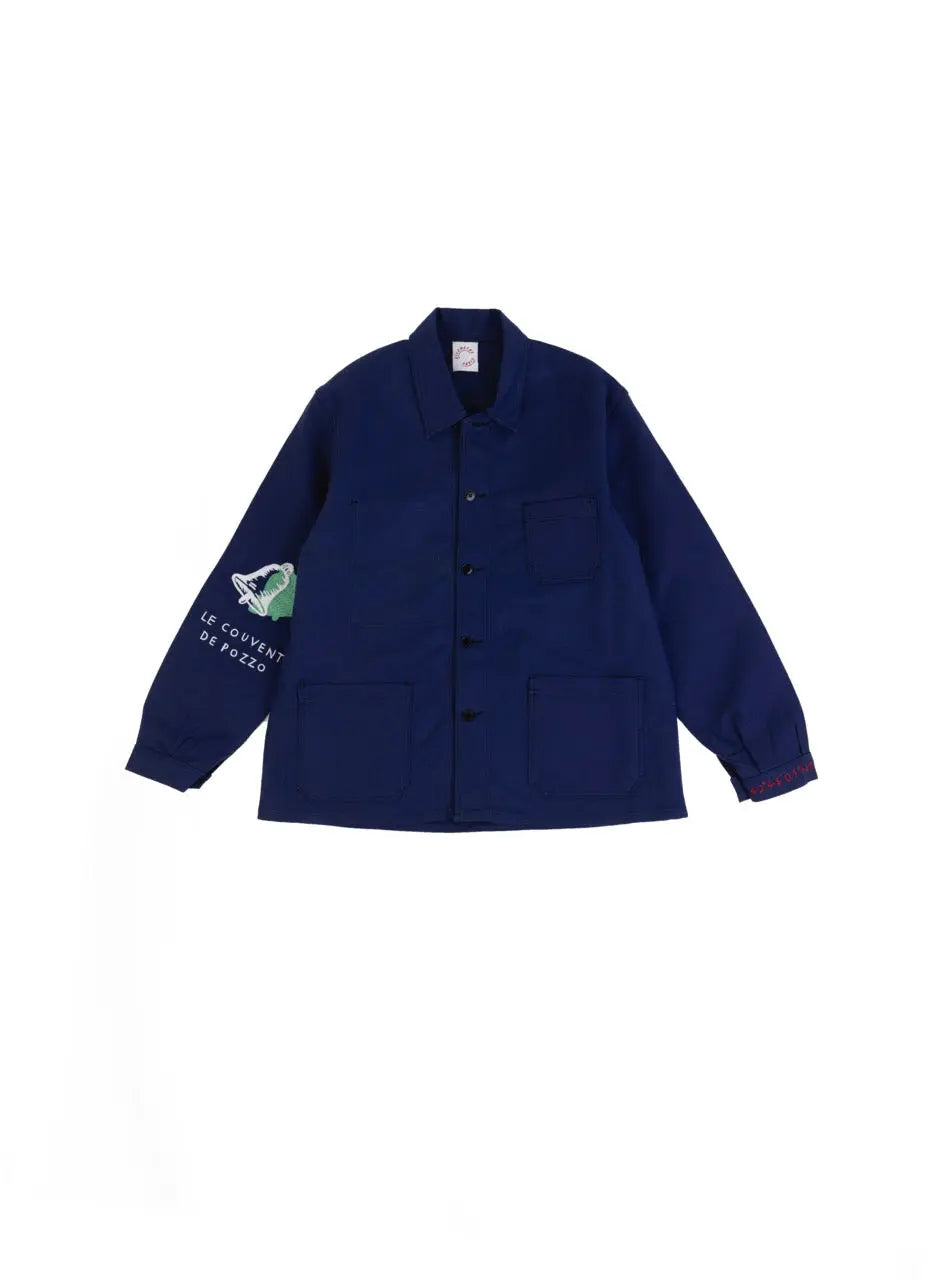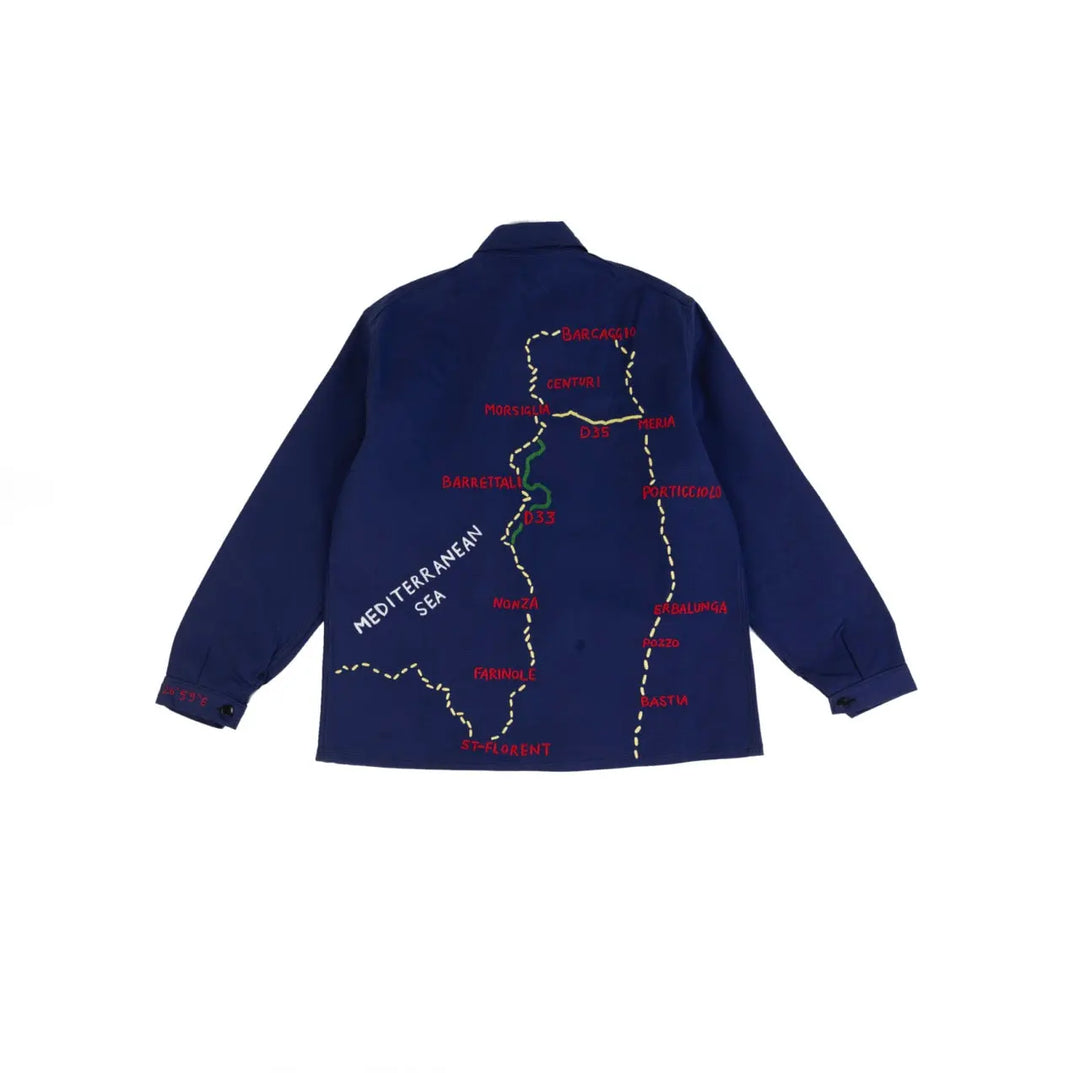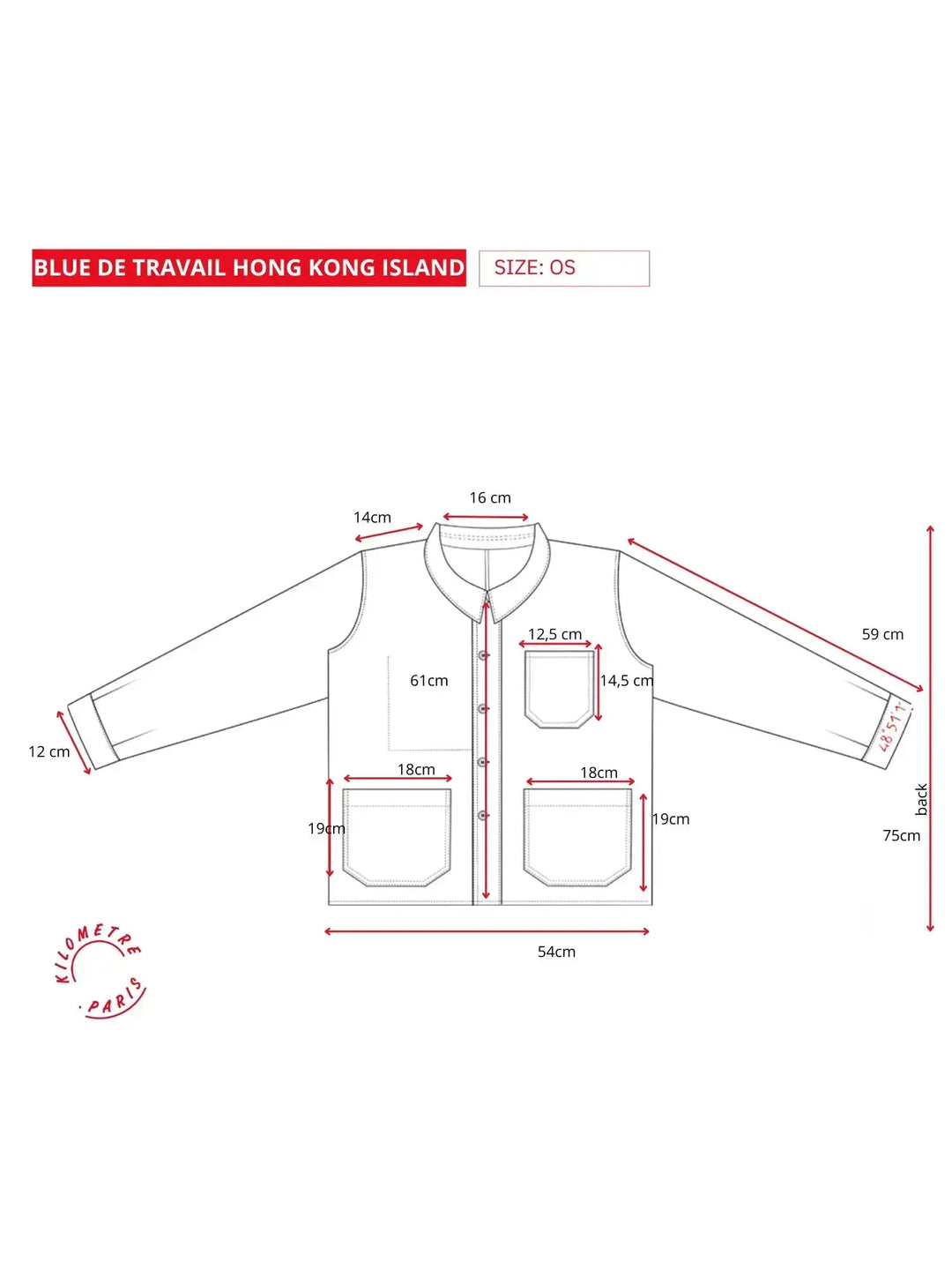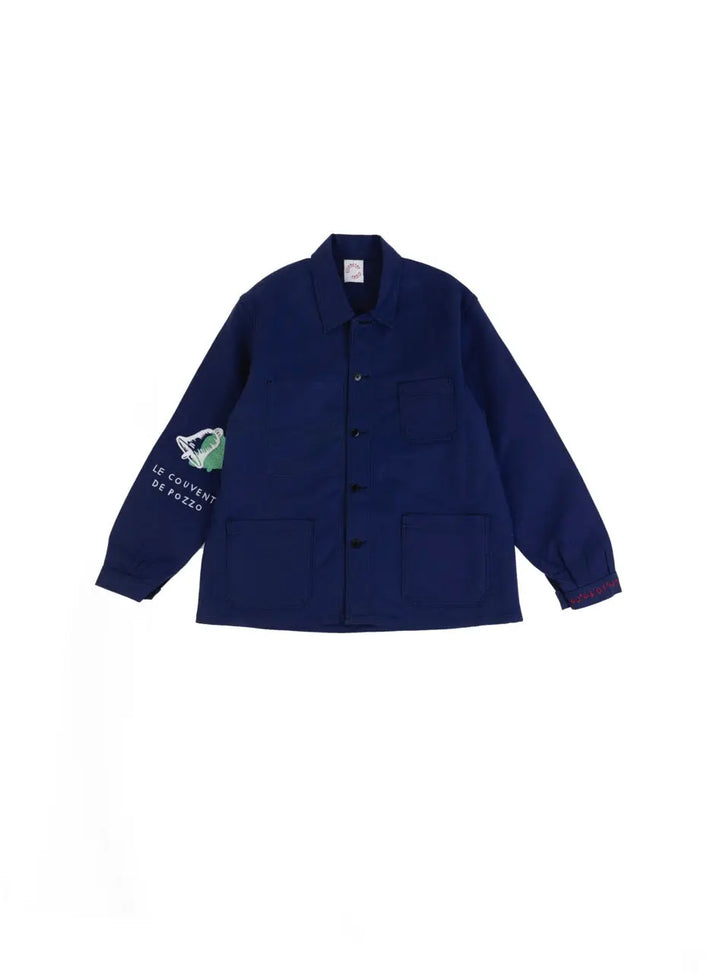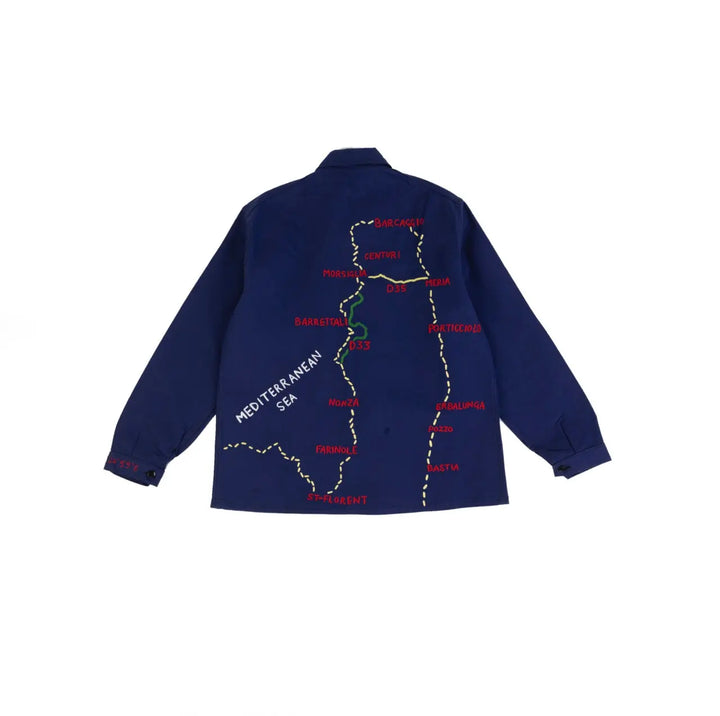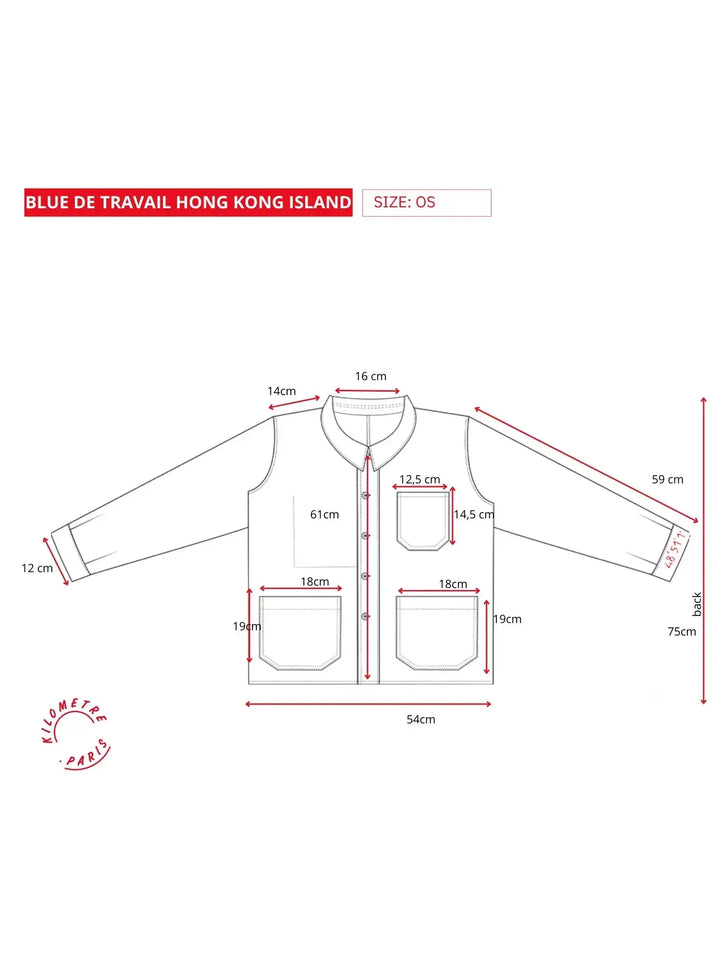
POZZO









Heather Scott Peterson
We at Kilometre Paris would like to present our muse: Heather Scott Peterson.
She was born in New York. Grew up around makers. One grandfather drew political cartoons for Disney. The other built violins. Her mother painted. Her grandmother cooked. Hands were everything. Conversation happened through craft.
But home was complicated. A younger sister with deep challenges. So Heather moved through other spaces. Mostly her grandparents’ kitchen, where meals were rituals and hospitality was infrastructure. The table wasn’t set, it was built, daily.
She became an artist. First painting, then sculpture. Eventually, material itself became the subject. The question shifted from what to represent to what to work with. Flesh. Skin. Shell. Stone. Now: bacteria. Living matter with invisible agency.
Heather doesn’t do cycles of productivity. She does geological time. She creates for years in silence. Then shows three solo exhibitions in one year, like in 2023. Then disappears again.
In between, she teaches architecture. Since age 22. She’s obsessed with how space, matter, and behavior intersect. With how we construct not just buildings, but shared conditions, social, spatial, biological. Architecture, for her, is both shelter and consequence.
Next stop: Rome. Winner of the 2026 Rome Design Prize. Her proposal? Microbial geographies. Not metaphor, actual stone-shaping bacteria. She’s studying how Rome was built before Rome existed: how limestone formed, how microbes carved it. And how those same bacteria are now being used to repair monuments. Preservation through life.
She wants to use them sculpturally. Controlled decay. Mineral accumulation. Growth without gesture. Sculpture that doesn’t look made, but is made. By time. By bacteria. By collaboration with the nonhuman.
Ask her about touch and she won’t romanticize it. She’ll say: brains and hands evolved as one system. You can’t separate thinking from making. Most people today live in their eyes. That’s a problem. Touch has been downgraded. The phone, our most touched object, is glass, the least tactile material we know.
Ask her what she’d do with a blank check and three months, and she won’t go on vacation. She’ll gather artists. Fund their risks. She did it once, ran a gallery for a year, without big capital but with creative latitude. She asked each artist: What’s the risk you’ve never taken? Why not? The answers were always practical. A technique they didn’t know. A material they couldn’t access. A country they’d never seen.
So she sent them. To fabricators. To mountains. To workshops. The journey became the work. Not tourism. Transmission.
Corsica? She’ll take you to Cap Corse. To the river in the valley of Restonica, near Corte. The clearest water you’ll touch. The kind that reboots your body. She won’t over-program your day. She’ll tune it. Gauge your disposition. Curate the rhythm.
Heather doesn’t believe in art as object. She believes in thresholds. In what happens when you cross from knowing to unknowing. From seeing to feeling. From control to collaboration. With people. With matter. With time.
She doesn’t call herself a visual artist anymore. She’s a tactile thinker. A material strategist. A risk curator.
And she’s not interested in what you know.
She’s interested in what you’re still afraid to try.
Charlotte & Nina Brunet
We at Kilometre Paris would like to present our muse: Charlotte Brunet.
Born in Marseille. Raised in movement. She’s worked in communication and event strategy for years, but what she really does is create moments where people connect. Not networking. Not spectacle. Just real contact. That’s her metric. That’s what lasts.
Her first major project? Marseille-Provence 2013, European Capital of Culture. A cultural Olympics. Six years of preparation. Full territory activation: Arles to Toulon, with Marseille as the hub. She ran marketing, communications, coordination. Museums opened. Spaces reimagined. The Mucem. The J1 port hangars. The corniche flooded with sheep for a transhumance that made no sense on paper and yet, worked.
She’s not nostalgic about it. But it shaped her.
She doesn’t play the clichés. Not a “cagole,” she says, but she can do the accent. She moves between social spaces easily. You’ll never find her in one place. Call her and she could be anywhere in Marseille, markets, hangars, rooftops, alleyways. She doesn’t sit still. Not interested.
After 2013, she co-founded Jogging alongside Olivier Amsellem, a concept store on Rue Paradis that redefined what “retail” meant in the city. Fashion, design, beauty, books. It was never about product. It was about creating a place that Marseille didn’t have yet. A place where locals and visitors felt like they’d found something true.
It became a destination. People came for the pieces, stayed for the feeling. Eventually, they bought apartments. Literally. Clients became neighbors. Jogging became a frequency. They opened a restaurant in the courtyard. Then a cabanon in the Calanques. You could eat Jogging, sleep Jogging, dress Jogging. Except not in joggings, she’s clear on that.
She’s now helping shape the 10-year celebration of the Couvent de Pozzo. She’s known Emmanuelle for 35 years. The project isn’t just a collaboration, it’s continuity. Friendship becomes framework.
Ask her about the handmade, and she lights up. She cooks. She teaches her daughter Nina. Recipes passed from grandmothers to mothers to daughters. The gesture matters. The repetition. The intent. She worked hard to curate brands at Jogging that honored the process, not just the product. That’s where she and Kilometre crossed paths. Craft as ethic.
If you gave her a blank check and three months? She wouldn’t waste time. She’d travel. Everywhere. Every GPS coordinate stitched onto a Kilometre shirt? She’d make an itinerary. Egypt, for sure, Siwa, Adrere Amellal, the salt-white hotel in the dunes. Her daughter Nina already dreaming of it.
But she wouldn’t go alone. She’d bring her family. Always. That’s non-negotiable.
And yes, the carbon footprint, she’s aware. But she’d balance it with softness. Trains. Bicycles. Long walks. She’d savor. She’d explore.
Because Charlotte doesn’t move for movement’s sake.
She moves to discover what’s worth staying for.

Emmanuelle Picon, Loic, Zoé, Baptiste & Atlas
We at Kilometre Paris would like to present our muse: Emmanuelle Picon.
Born in Marseille. Raised in a house where precision mattered. She studied, moved, climbed, Paris, fashion, marketing, press, events. Fifteen years in the capital. Maison de couture, agency, then Galeries Lafayette. That kind of trajectory.
Then came a call, not metaphorical, literal. A house. Le Couvent. In the family since the French Revolution. Seven generations. Passed down, inherited, and eventually entrusted to her mother. A decision followed. She left Paris. She came home. Except it wasn’t quite home yet. It was structure, memory, dust. She made it livable.
The house was once a Capuchin monastery. Mendicant order. Frugal bones. Emmanuelle didn’t redesign it, she negotiated with it. She says it herself: the house has its own style. You don’t impose narrative on it. You listen. You adjust. You conserve.
She’s not a hotelier. She’s not an innkeeper. She says “taulière” sometimes, keeper of keys, keeper of rhythm. But mostly, she’s the conservator. The one who makes sure nothing breaks, nothing slips. Two plates broken in ten years. She knows. She counts.
She didn’t decorate much. Her grandmother had taste. So she kept it. But she rewired the walls. Resealed the foundation. Built in comfort without disrupting the spine. The rooms remain monastic. Small. Cell-like. That’s the point.
She doesn’t try to modernize the past. She makes it function again.
There’s a kitchen, of course. She cooks. Every night, a communal table. One table. Not by design, but by necessity. She had one, so people sat together. And it worked. Now it’s the house’s ritual. You eat. You talk. You stay.
People arrive formal. “Bonjour madame.” By the second morning, they’re barefoot in pyjamas. She’s seen it a hundred times. The shift. The letting go.
She wrote a book: La Table du Couvent – The Art of Hosting. She teaches yoga. Each chapter starts with an aphorism. The final line of the preface: “Meditation is the umami of life.”
She’s clear about her values:
Authenticity over perfection.
Craft over speed.
Presence over polish.
She doesn’t do things she doesn’t respect. If she doesn’t know how to make pâte feuilletée, she doesn’t fake it. She makes other doughs. The ones she knows. The ones she can stand behind.
Give her three months and a blank check? First, some financial ease. She’s an entrepreneur. She manages constraints. Then she’d leave. With her husband, her children. Not for escape, but for contrast. She believes in travel. In spice markets. In color. In remembering that everything can be done virtually, but nothing can be felt that way.
And then she’d return. Because for her, the point of leaving is always to remember why you stay. And Corsica, she says, is the island of a thousand beauties.
If you only had 24 hours? She’d make it count. Wake up at 5. Catch the sunrise over Cap Corse. Drive the D35 across the crest. Stop at the top. See both coasts. Cross east to west. End at the table. Her table.
She won’t call it a restaurant.
She’ll call it a house that feeds you.
And no, she doesn’t need to invent a story for the Couvent.
The place tells its own.
She just makes sure nothing gets in the way.
Ninon Roussel
We at Kilometre Paris would like to present our muse-cook: Ninon Roussel.
She didn’t train in a kitchen. She trained in life. In zigzags. In shifts. In slow returns to what feels right. Art in Paris. Law in New Caledonia. Naturopathy in Paris again. And then, finally, the thing that had been pulsing underneath all along: food.
Her story begins like this: a girl who never ate Nutella. Whose mother served simplicity, not excess. And who, in the sticky sun of Nouméa, discovered that to eat well, you must cook well. That good food isn’t bought, it’s built. So she learned. Herbs, hands, heat. Nourishment that heals. Not with supplements, but with real ingredients. With intention.
Then came Corsica, through her sister, a beekeeper with hands in the soil and a garden that hums. That’s where Ninon landed. And stayed. And cooked.
Today, she co-signs each dish with Emmanuelle Picon at Le Couvent de Pozzo. But don’t call it a restaurant. There’s no menu, no show. The meal arrives as a surprise, a rhythm, a kind of ceremony. Guests sit at long tables. Strangers become companions. The table becomes communion. It’s a Catholic shabbat, someone said, no sermon, just presence.
The dishes? Mezze-style, always. Because Ninon doesn’t believe in one plate, one person. She believes in sharing. A salsa verde of anchovies and herbs. Potatoes lifted by a five-minute almond-chili-thyme sauce. Grilled fish with citrus-tomato vinaigrette, eaten barefoot on a boat. Simple food, elevated by the invisible, the hand, the thought, the time.
She doesn’t cook Corsican food every day. She wasn’t born to it, Strasbourg by birth, Paris by default. But she loves it. Honours it. Just as she honours the cuisines of elsewhere. Because her cooking doesn’t aim to replicate. It aims to connect.
If you had just one day in Corsica? Ninon would take you sailing, her partner’s boat, the wind at your back, the coast slipping by in secret coves. You’d fish, if you’re lucky. Cook onboard. Eat tomatoes, mozzarella, lemon-soaked onions, the kind of meal that doesn’t interrupt the view. And then: a nap, rocked by the sea. Return to Bastia at dusk, the church lit gold. Walk the citadel. Finish the night at a tiny place for pinsa, that Roman cousin to pizza, made by Italians, crisp and perfect, under the stars.
And if you gave her three months, no limits? She’d sail. No planes. No noise. Just a slow descent along the Italian coast, up to Croatia, down to Greece. She’d cook when she wanted. But mostly, she’d eat. Watch. Absorb. Return changed, not by luxury, but by taste.
Because for Ninon, the hand is everything. It harvests. It shapes. It gives. It places a plate on the table and carries with it the story of the one who made it. “The true luxury,” she says, “is time.” Time to knead. Time to grow. Time to serve. Time to offer what’s good and real, and made, always, by hand.

Vanessa Soboul
We at Kilometre Paris would like to introduce our muse- agent: Vanessa Soboul.
Don’t ask her what to do in 24 hours. She won’t answer. Too short. Not enough time to get rooted. If you insist, she’ll smile and push back: come back with four days, and maybe she’ll take you to the Cap Corse. Bastia, then the convent. Then Ersa. Then down the coast, Pinot, Nonza, Saint-Florent. August is tricky, of course. Too many people. But if you catch the season right, you’ll understand why she stayed.
She’s Corsican. Or rather: she became Corsican. Her mother’s side. A family house from another century. Arrière-arrière-arrière. No one’s sure when it started. But it’s still there. And she’s in it. Not just for summer. All year. She moved back after thirty years in Paris. Without nostalgia. With clarity. She says it’s the only place she wants to stay. She tried the city. She knows what it offers. But here, in the village, she’s anchored.
She was born in Montélimar. Studied in Aix. Then Paris. A classic line. But nothing about her feels corporate. In Paris, she worked. She built her network. And she met the people who shaped her.
Like Mathieu Salvaing. Photographer. Friend. A certain kind of elegance, she says. L’art de vivre, in image. She represents him. Not out of strategy. But admiration. That’s her rule: she only works with people she admires. That’s non-negotiable.
She doesn’t run a traditional agency. No list. No catalogue. She’s not in the business of “talents.” She’s in the business of careers. Of trajectories. She listens. She questions. She shapes the path alongside. Contracts, choices, clients, it’s all part of the same movement. Her style is custom. Boutique. Sometimes headhunter. Sometimes negotiator. Always committed.
Now she’s based in Corsica. She lives in the old family house built in the 1800s. She makes trips to Paris when it matters. The rest of the time, she stays in the village. When asked what she’d do with an unlimited budget and no need to work, she doesn’t even blink. She’d stay exactly where she is. No jet lag. No spa retreat. Just her house. Her rhythm. Her decisions.
She talks about savoir-vivre the way others talk about strategy. Not as a concept. As a foundation. As a way to work, live, and choose. It’s not decorative. It’s central.
Vanessa doesn’t pitch herself. She doesn’t scale. She doesn’t delegate.
She listens. She reflects. She commits.
She doesn’t manage talent.
She accompanies people.
And she only goes where the work, and the respect, is mutual.

Stéphanie Massiani & Jacky Nicolai
We at Kilometre Paris would like to present our muses: Jackie and Stéphanie, the two women behind Chez Marnie. Or maybe not behind, more like inside. Front-of-house, back-of-house, soul-of-house. There is no façade here.
Jackie used to work in a bank. Thirty years in Bastia. Now she runs the floor, keeps the door, holds the line. You don’t reserve? You wait. You don’t wait? You leave. She says it nicely. Sort of. It depends.
Stéphanie has always cooked. Grandmother, father, sister, everyone in food. She co-ran a giant brasserie once, then walked away. She wanted something small. Intimate. Near home. After a general anaesthesia in 2018, she scrolled through listings and saw a place ten meters from the apartment. Still half-doped, she told Jackie: call. They saw the space one hour later. It was raining. It was a mess. They said yes.
Chez Marnie is not a restaurant. It’s a mood. A story. A set. The name came from a Hitchcock film, a bit of psychoanalysis, and a blend of two surnames. The R stands for roots. The decor is 1960s-70s nostalgia: floral prints, found objects, flickers of a childhood spent at a great-aunt’s house with tomato confit, mustard made from the garden, tables full of strangers turned friends.
The kitchen isn’t Corsican. Not really. Not rigid. Stéphanie cooks what she feels. One guest said it best: “You don’t eat her food, you absorb her emotions.”
Instagram? It’s a game. It’s a spoof. It’s Cattelan meets casserole. She never wanted to post perfect dishes. She wanted cinema. She once dreamed of La Fémis. She made films. Now she makes scenes. Every post is a frame. Every night a script.
They’ve been a couple for 21 years. Not married. Doesn’t matter. Marnie is not their child, they say. “If it were, it’d be too difficult, too capricious.”
Seventy covers across three rooms. It fills. Fast. Regulars return. Some wait hours. Some are turned away. All come back.
Ask Stéphanie what “avoir la main” means, and she won’t theorize. She’ll tell you:
Some people have it. Some don’t.
Technique isn’t enough. Repetition isn’t enough.
Having the hand means freedom.
It means you don’t follow. You invent.
Ask where they’d take you for 24 hours in Corsica, and they’ll split. Stéphanie would take you up to Saint-Florent. To the old house. To her great-aunt’s long table. There would be dried tomatoes. Maybe just leftovers. Made right. Perfect.
Jackie would keep it simple. Home. Dinner. Glasses clinking. No fanfare. Just food.
Give them three months and a blank card? Jackie’s off to Japan, two months, at least. She wants the full immersion: not Tokyo, but the places where the husband and wife cook alone, where dinner is a ceremony, not a service.
And the last month? Maybe the Couvent. Maybe nowhere. Maybe back home. Maybe Chez Marnie, because even when they leave, they don’t really.
They built this place from a rain-soaked impulse and a lifetime of appetite.
It is not a concept.
It is not curated.
It just exists, like the best things do.
Come hungry. Come late. Come with someone or alone.
But come ready to sit.
Because if you’re lucky enough to get a seat,
you won’t want to leave.




Philippe Santini
We at Kilometre Paris would like to present our muse: Philippe Santini.
He speaks softly, but his voice is sure. Philippe doesn’t perform Corsica, he lives it, breathes it, knows where it folds inwards, quiet and powerful, like a lung. If you gave him 24 hours, he wouldn’t race you to the postcard views. He’d walk you through the pulse of the island, the undercurrent, the marrow.
Start with the market. Not just any, le petit marché artisanal d'Oletta, near his home. Where the cheeses speak of the animals, and the producers speak like poets. He loves that. Tasting. Listening. Hands holding products that don’t lie.
From there, the beach, but not a beach, la cabane du Lodu. Dappled shade, trees whispering over a simple table, food as honest as the sea it overlooks. A team he knows, a place he loves. And always, a cold pitcher of rosé. You arrive by boat from Saint-Florent, and the journey is the arrival.
Then, a detour. Not to escape, but to feel, the roads of Cap Corse, winding like veins through cliffs and old stone. He’d stop at Café de la Tour, a glass in hand, and let the silence stretch. Maybe a hike, just enough to earn the stillness.
Dinner? It must be Campo di Monte. Stone house. Winding road. A table that holds memory. Recipes passed down, plates unchanged. Pauline in the kitchen. Her son, radiant and kind. It’s more than food. It’s home. And then, the night ends at the Couvent de Pozzo. A view that doesn’t ask to be photographed. A sunrise that humbles. “The most beautiful I’ve ever seen,” he says. And he says it slowly.
Who is Philippe? A son of Corsica, not raised there, but rooted. His family came from Olmeta-di-Tuda and Sant'Antonino, but work took them elsewhere: Casablanca, Cannes, Paris. A lineage of masons and movement. A memory carried through generations. His father was a kiné. His mother, a dance teacher. Philippe, though, wrote ads.
Fifteen years in the noise of agencies, Publicis, McCann, creative direction, planning. Big clients. Bigger campaigns. Then a pivot. He joined his friend Sarra Messaoudi at Touché, a small but super creative Paris-based agency with a heart in LA and a spine of independence. Luxury, beauty, travel, Bella Hadid’s Orebella, Club Med’s “l’esprit libre.” Philippe and Sarra helped shape the stories behind the stories.
And still, something was missing. A need for slowness. For ink. For weight. So he created Maquis, a 200-page magazine about Corsica that feels like earth underfoot. No donkeys. No clichés. Just wildness. Stone. Interior light. He did it all, writing, photographing, wrapping, shipping from his home. Now, there’s a team. A distributor. But the essence hasn’t changed. A guide, yes, but not a list. A curation of aesthetic insistence. If a place doesn’t photograph well, it doesn’t go in. That’s the rule.
He’s not trying to sell you Corsica. He’s showing you what you’d miss without him. The shadows. The textures. The rhythm of a place that doesn’t rush to meet you, but stays, if you stay.
Philippe doesn’t chase projects. He builds them. Slowly. Precisely. Like stone upon stone. Like a sunrise over Pozzo.
Julie & Nicolas Mariotti Bindi
We at Kilometre Paris would like to present our muses: Nicolas and Julie Mariotti Bindi.
They are not winemakers. They are translators of a landscape. North of Corsica, in Patrimonio, where the hills ripple with vines and the salt air still tastes like history, they tend, they touch, they listen. Theirs is not a vineyard born of inheritance or ancient walls. It is a vineyard born of will.
Nicolas started alone. From zero. Just a vision, a pair of hands, and a patch of land. From pruning shears to shipping tape, he did it all, not as a gesture of martyrdom, but of belief. Julie arrived years later, and everything shifted. The energy, the rhythm, the wine. She was supposed to stay on the commercial side, but no. You’ll find her on the tractor, in the rows, under the sun. She is the kind of vigneronne who doesn’t perform strength. She lives it.
Together, they don’t just make wine. They live it. Taste it. Question it. Every vintage becomes a dialogue, every cuvée a response. Their process is not cerebral. It’s intuitive. Fluid. Alive. The wines evolve because they do, because love does. “What we drink now,” they say, “we won’t drink in ten years.” Not because they’ll grow tired. But because they’ll grow.
They believe in freshness. In digestibility. In wines that hum quietly and carry you without weight. No additives. No corrections. Just nature, risk, and a touch of chaos. Sometimes the vintage is too ripe, the alcohol too high, so they wait. They don’t fight the problem. They fold it into the story. Like Zinzin, named for the urchin (zin in Corsican), a wine born from a mistake, reborn into purpose, low-alcohol, saline, made for sea creatures and long, laughing lunches.
Their bottles aren’t branded. They’re revealed. Albor, dawn in Corsican, came from a photo Nicolas took on film, Lomo Metropolis and Kodak at the same moment, capturing two truths: one red, one white. One sunrise, one label. That’s how they work. Not through campaigns, but through coincidence. Through beauty that insists on becoming part of the process.
Ask them where they’d take you for 24 hours, and it always circles back to the sea. A boat ride into the Gulf of Saint-Florent, apéro at sunset, thon à la plancha, wine chilled, langoustines crackling on the grill. A glass raised as the sun folds itself into the horizon. Julie from the South, Nicolas from the North, together, they’ve made a new map of Corsica, anchored in waves and work.
And if you gave them a blank check and three months of freedom? They’d keep doing what they do. But on a sailboat. Through the Mediterranean. The salt, the sun, the food, the books. With no vineyard to tend, but still, somehow, always tethered to the land. Because they are Mediterranean, they say. Not just Corsican. They feel it, the Maghreb, Italy, Greece, not as destinations but as kin.
And through it all: the hand. La main. The pruning, the lifting, the crushing, the bottling. But also the intention behind the gesture. The thought inside the act. They won’t delegate it. They won’t give it away. Because that is what shapes the wine, the body, yes, but also the spirit. The hand that carries not just skill, but love.
Julie and Nicolas don’t just work together. They grow together. They drink, create, laugh, listen, prune, press, row by row, day by day. Their wines are not labels. They are episodes. And their vineyard is not a business. It is a life.

Michael Prüssner
We at Kilometre Paris would like to introduce our muse- guide: Michael Prüssner.
Give him three months and a company card, and he won’t book a five-star spa or a boardroom in New York. He’ll take the Silk Road. Not a metaphor, the real one. North route, central, southern line through Iran. He’s already walked parts of it. But once isn’t enough. When a place holds that much history, Alexander, Genghis Khan, Marco Polo, you go back.
He travels for impact. For memory. For material. Textiles, architecture, food, color. He collects none of it. Just stories. Places. People. That’s his archive.
Michael is Swedish-Canarian. His father, a tourism pioneer. The family lore includes Don Juan, 1960s Gran Canaria, a thousand stories. He’s visited more than 180 countries. Not ticking boxes, embedding himself. Living the dailies. Learning how design and culture overlap.
He used to love glossy design. Then he met Erwin Himmel. Barcelona. Automotive world. Erwin Himmel taught him to go deeper, materials, systems, light, safety. Aesthetics backed by rigor. It changed how he saw everything. Now, he crosses sectors, personal care, travel and leisure, local cultures and hospitality, with the same principle: what’s the structure underneath?
He works in sales. But don’t confuse that with pushing product. He creates alliances. Between brands, makers, tribes. He speaks B2B, but he listens in storytelling. His approach is tactile, rooted. He’s less interested in market trends than in shared value. He says the future isn’t vertical. It’s tribal. Families. Communities. Brands that mean something.
Ask him what matters, he won’t say “luxury.” He’ll say “intention.” He likes places that slow you down. Encounters that change how you see. Materials that hold a trace of the hand. He admires people like Daniele Kihlgren, who restored forgotten Italian villages, revived old crafts, trained young artisans. Not nostalgia. Legacy. A future built from memory.
Michael believes in real contact. With others, with materials, with yourself. He says we’ve gotten too fast. Too global. Everything looks the same, just re-skinned. But craft cuts through. Touch anchors. Emotion lands. That’s why the handmade matters. It doesn’t just work. It speaks.
He applies the same logic to his consulting. He helps brands find that story. Not just for marketing, but for truth. So that what they say, and what they sell, aligns. He’s worked with the best, from design to hospitality, and each time, he looks for what’s honest. What’s rooted. What can last.
Michael’s work spans continents. But the core is steady:
Know the story.
Know the craft.
Create something that feels true,
and you won’t need a pitch.
You’ll just need a seat at the table.
Or a path through the mountains of Sokotra.
Or a key to a door that opens quietly,
to something worth remembering.
Murielle Guidicelli
We at Kilometre Paris would like to present our muse: Murielle Guidicelli.
She doesn’t want your corporate credit card. Not out of pride, but instinct. She says it kindly, firmly: too much money disturbs the balance. She prefers small moves, built over time. Generation after generation. Wine, for her, is not a vertical. It’s a lineage.
She’s a vigneronne. Based in Patrimonio, in the north of Corsica. Her domaine, Guidicelli, didn’t exist before 1997. It began with five hectares, just one old vineyard. The owner had no heirs interested. Murielle stepped in. She was 34. She liked being a student. But when the land called, she answered.
Today, she works ten hectares in biodynamie. No rosé. Just white, red, and muscat. Sharp wines. Direct. Built. Backbone-first. Her white is 100% Vermentinu. Her red, 100% Niellucciu, cousin to Italy’s Sangiovese. No blending. No softening. She likes clarity. She likes character. You taste the bottle, you feel the winemaker.
She compares it to pottery. The gesture tells you everything. The grape, like the clay, responds to the hand. Each vine is touched. Each bunch is tasted. Especially for the reds. Grain by grain, they cut, discard, choose. The work is slow. But precise. The kind that leaves a fingerprint.
She says her wines reflect her. “Francs, peps, bien construits.” If her daughter takes over, the wines will change. Softer, maybe. That’s how it should be.
She lives with her husband. He works the vines. She vinifies. She handles the paperwork. The export. The travel. The commerce. The furthest her bottles have gone? Japan. Biodynamic circles cross borders. They meet in salons, Angers, Grenier Saint-Jean, Nicolas Joly’s domain. That’s where you taste, compare, debate. That’s where stories travel.
Ask her about the land, and she won’t speak in abstraction. She’ll take you to her domaine. A modest one. Just the way she likes it. You’ll see mountains shaped like lace. The Gulf of Saint-Florent, pressed between clay and limestone. One side golden. The other dark. A balance. A tension. The vineyard lives in between.
You’ll meet the vignerons of Patrimonio. A real village. The only one like it on the island. Once there, she says, you won’t want to leave.
Murielle doesn’t perform authenticity. She lives it. You ask her about the handmade, and she doesn’t launch into a philosophy. She just tells you how she works. Slowly. Exactly. Consistently. No gimmick. No gloss.
She prefers wine that doesn’t hide.
Places that don’t pretend.
And people who know that good things take time,
but leave a taste you don’t forget.

Chrissie Muhr
We at Kilometre Paris would like to present our muse: Chrissie Muhr.
She trained as an architect, Stuttgart, diploma in hand, a supposed classic German path, but she never built buildings. Not really. She builds conditions. Support structures. Catalysts. Situations where experiments and innovation can happen. That’s her fuel.
She lives and works in Basel. Ongoing in Berlin. Regular in Copenhagen. A constant commuting and connection. For work and of people and visions. And then Cap Corse, once a year for the past 11 years. The Couvent pulls her in.
She’s not interested in “what architecture looks like.” She’s interested in what it enables. In what happens between form and policy, research and reality, institutions and the ground. That’s where she works: the space between.
In Berlin, she runs Experimental, a foundation founded by architect Prof. Regine Leibinger. The mission is simple and still impossible: to bridge research and practice. Fund practice fellowships. Reset material use. Bridge the gap between academic theory and actual buildings, construct with earth, reuse concrete, turn constraints into value chains. Create real-world impact.
Copenhagen? The same but different. Fritz Hansen, 150th anniversary. How to activate their archives for the future. Physical. Digital. Conceptual. Material. For Dreyers Fond she curated a show at Copenhagen Contemporary. Reset Materials – with ten teams, each one architect and artist, pushing for a more sustainable architecture future. Recycled. Regenerative. Forgotten. Not sample stage, but actual tools and sensual spatial experiences. The show reactivated and initiated material methods through 1:1 fragments. She calls it “material intelligence.”
Her practice is dialogical. She says that word a lot. Not decorative, not linear, not top-down. It’s about listening. Mediation. Moderation. Strategy. Learning. Catalysing change. Moving things forward without dominating.
And the hand, always the hand. Not as a romantic metaphor. As evidence. As memory. As method. Architecture lost its hands, she says. Detached from material, from production, from feedback. That has consequences.
Ask her about Mallorca, and she’ll talk about sandstone quarries that have gone silent. From 38 to 9. Two still active. Ask her about Arles, and she’ll bring up Atelier LUMA, bio-regional materials, value chains. Ask her about Oman or Vietnam, and she’ll list and connect. Techniques. Knowledge. Craftspeople.
She knows that once it’s gone, it’s not easily brought back. So she works on regeneration through reactivation and revaluation of the existing. Not museums. Systems and practices.
If you gave her three months and a limitless card, she wouldn’t disappear. She’d activate. Start a network. Call people in. Curators, builders, researchers, farmers. She’d trace practices. Find intersections. Map supply chains. Prototype methods. Connect nodes that were never meant to stay isolated.
She doesn’t need more theory. She needs time, and people, and the will to experiment, to dare to change.
Her Corsica isn’t touristic. It’s ritual. Morning barefoot walk to the pool, swimming her laps as the sun rises. Espresso at Chez Jeannot. Erbalunga stone beach. Swimming in the sea. Dogs. Farmers market. Then Bastia, gelato at Raugi, local cheese and wine makers. Lunch at BoccaFina in Nonza. You return – to the Couvent. You meet. You talk. You eat. You stay. You become friends.
She likes structures. She hates hierarchy. She believes in dinners. And in the long table as a tool of transmission.
Chrissie isn’t nostalgic. She’s precise.
Not abstract. Not whimsical.
She knows exactly what’s broken,
and she’s building the catalyst to fix it
Jean-Antoine Ottavi
We at Kilometre Paris would like to present our muse-chef: Jean-Antoine Ottavi.
He doesn’t own a restaurant. He doesn’t need walls. Jean-Antoine cooks where the earth breathes loudest, in the maquis, under pine needles, on vineyard slopes, in Corsican wildness where the silence feels ancestral. He is a nomad chef, yes, but more than that, an epicurean druid, a gatherer of land, of people, of moments that can’t be repeated.
He calls his tables tabliers. They appear in secret, in stone clearings, on hilltops, near ancient vines. What they serve is not just food, it’s geography. A cuisine of hyper-local devotion, sourced from friends, neighbors, and soil he knows by name. Gaspacho of early tomatoes from a lifelong maraîcher. Falice, fried with chorizo and herbs of the maquis. Veal from the eastern plains, raised by Philippe. Thon rouge pulled from Corsican waters, paired with caponata and harissa from a Tunisian chef in Paris. Pavlova to finish, apricot, verbena, a kiss of mangosteen.
Jean-Antoine was born here, raised in the maquis. His people were shepherds. His bloodline: hands. His language: season, fire, salt. He trained in Corsica, then in Lyon under the Bocuse banner, then again in Paris, and again every day since, learning from the land, from other chefs, from curiosity that never sleeps. But he always returned. Because for him, the maquis isn’t just a place. It’s a frequency. A way of seeing.
Ask him where he’d take you, and he’ll say here, the Clos de Bernard, halfway between vines and sky. Or maybe the Calanche de Piana, where it all began: cooking with friends, with no name, no rules, just the sun setting over fire and fig. Because that’s the essence, food as gathering. Cooking as communion. Tablier as ritual.
And if you speak of the hand, la main, he lights up. “It’s the best tool,” he says. Not the oven, not the knife, not the newest gadget. La main. It feels. It interprets. It knows when the seasoning is right, when the lamb has sighed, when the dough is ready to rest. It is the soul’s translator.
Three months and a blank check? He wouldn’t change a thing. He would still cook, still gather, still offer. But maybe, maybe, he’d bring the tablier to the shores of Lake Como. Or Patagonia. Or Alaska. Not for show. For love. He dreams of expeditions where friends and strangers share meals at the end of the earth, where the wind and wood and wine all speak at once.
Because Jean-Antoine Ottavi doesn’t feed hunger. He feeds joy. He feeds connection. He cooks not for himself, but always, always, for the others.
